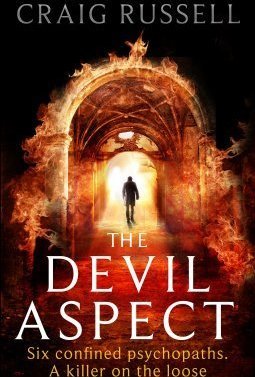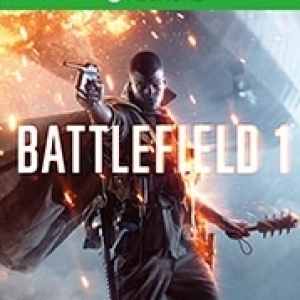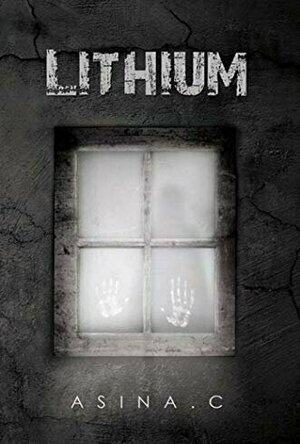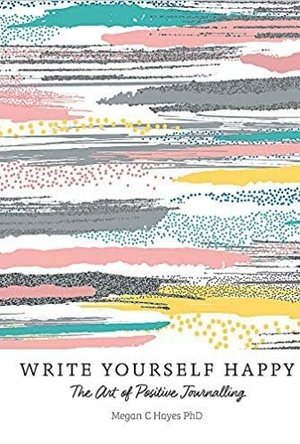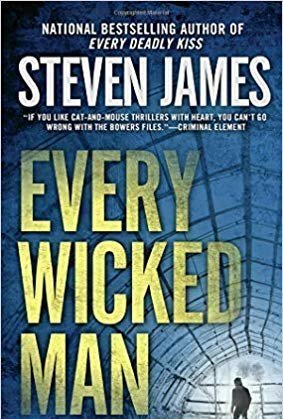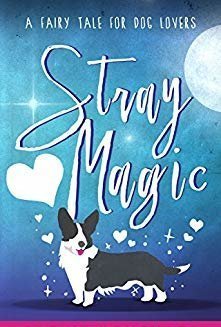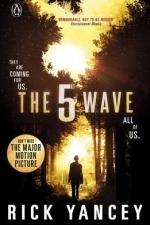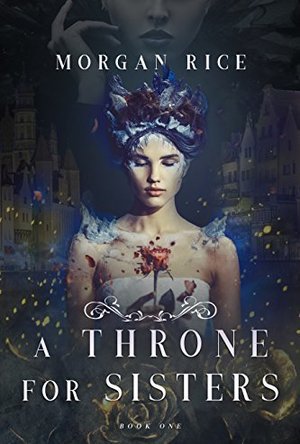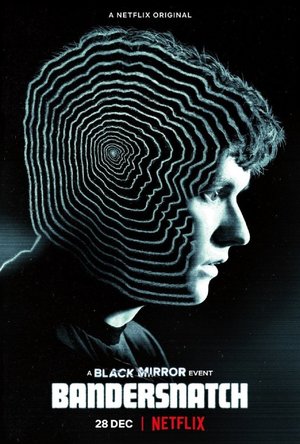Search
Search results
Ivana A. | Diary of Difference (1171 KP) rated The Devil Aspect in Books
Feb 3, 2020
<a href="https://amzn.to/2Wi7amb">Wishlist</a>; | <a
<a href="https://diaryofdifference.com/">Blog</a>; | <a href="https://www.facebook.com/diaryofdifference/">Facebook</a>; | <a href="https://twitter.com/DiaryDifference">Twitter</a>; | <a href="https://www.instagram.com/diaryofdifference/">Instagram</a>; | <a href="https://www.pinterest.co.uk/diaryofdifference/pins/">Pinterest</a>;
<img src="https://i1.wp.com/diaryofdifference.com/wp-content/uploads/2019/10/Book-Review-Banner-26.png?resize=768%2C432&ssl=1"/>;
<b><i>The Devil Aspect by Craig Russell was a very pleasant read for me for many reasons! I am so glad I got the chance to read it!
The Plot</i></b>
A terrifying novel set in Czechoslovakia in 1935, in which a brilliant young psychiatrist takes his new post at an asylum for the criminally insane that houses only six inmates–the country’s most depraved murderers–while, in Prague, a detective struggles to understand a brutal serial killer who has spread fear through the city, and who may have ties to the asylum.
Psychiatrist Victor is starting a new job in the Asylum where the Devil’s Six are – Czech Republic’s most dangerous murderers. Victor has a theory by the name of the Devil Aspect, where he believes that is manifested in these six murderers. He believes it comes out in certain circumstances, making these people commit crimes, but not being aware they have done it. Something similar to a split personality, but in this case, the murderers think that the Devil is next to them, and he is making them do all these things.
<b><i>My thoughts</i></b>
This book was such a pleasurable roller coaster. I wasn’t able to put it down and I read it in only a few days. The writing is unbelievable and I am going to be picking up other books from this author, for the sole reason of his writing. The Devil’s Aspect was so intriguing and it kept me on my toes at all times. I found it extremely enjoyable.
The blend of mythology, culture and psychology is perfectly put together, and having lived in the Balkan countries, I can easily relate to many of the culture aspects. It was perfectly described and I felt as if I am in 1935 together with the characters. The time and place are wonderfully written, with incredible accuracy.
The ending was the most pleasurable, and without spoiling anything, I will only say a few things… Be ready for everything to happen. This book has many twists and many scenes where dangerous things are happening. A lot of intensity which I devoured with great pleasure. If you are coming for an adventure, you will get even more that you bargained for.
<b><i>Proceed at your own risk! And good luck!
Thank you to the team at LoveReading UK and the author, Craig Russell, for sending me a copy of this book in exchange for an honest review.</i></b>
<a href="https://amzn.to/2Wi7amb">Wishlist</a>; | <a
<a href="https://diaryofdifference.com/">Blog</a>; | <a href="https://www.facebook.com/diaryofdifference/">Facebook</a>; | <a href="https://twitter.com/DiaryDifference">Twitter</a>; | <a href="https://www.instagram.com/diaryofdifference/">Instagram</a>; | <a href="https://www.pinterest.co.uk/diaryofdifference/pins/">Pinterest</a>;
<a href="https://diaryofdifference.com/">Blog</a>; | <a href="https://www.facebook.com/diaryofdifference/">Facebook</a>; | <a href="https://twitter.com/DiaryDifference">Twitter</a>; | <a href="https://www.instagram.com/diaryofdifference/">Instagram</a>; | <a href="https://www.pinterest.co.uk/diaryofdifference/pins/">Pinterest</a>;
<img src="https://i1.wp.com/diaryofdifference.com/wp-content/uploads/2019/10/Book-Review-Banner-26.png?resize=768%2C432&ssl=1"/>;
<b><i>The Devil Aspect by Craig Russell was a very pleasant read for me for many reasons! I am so glad I got the chance to read it!
The Plot</i></b>
A terrifying novel set in Czechoslovakia in 1935, in which a brilliant young psychiatrist takes his new post at an asylum for the criminally insane that houses only six inmates–the country’s most depraved murderers–while, in Prague, a detective struggles to understand a brutal serial killer who has spread fear through the city, and who may have ties to the asylum.
Psychiatrist Victor is starting a new job in the Asylum where the Devil’s Six are – Czech Republic’s most dangerous murderers. Victor has a theory by the name of the Devil Aspect, where he believes that is manifested in these six murderers. He believes it comes out in certain circumstances, making these people commit crimes, but not being aware they have done it. Something similar to a split personality, but in this case, the murderers think that the Devil is next to them, and he is making them do all these things.
<b><i>My thoughts</i></b>
This book was such a pleasurable roller coaster. I wasn’t able to put it down and I read it in only a few days. The writing is unbelievable and I am going to be picking up other books from this author, for the sole reason of his writing. The Devil’s Aspect was so intriguing and it kept me on my toes at all times. I found it extremely enjoyable.
The blend of mythology, culture and psychology is perfectly put together, and having lived in the Balkan countries, I can easily relate to many of the culture aspects. It was perfectly described and I felt as if I am in 1935 together with the characters. The time and place are wonderfully written, with incredible accuracy.
The ending was the most pleasurable, and without spoiling anything, I will only say a few things… Be ready for everything to happen. This book has many twists and many scenes where dangerous things are happening. A lot of intensity which I devoured with great pleasure. If you are coming for an adventure, you will get even more that you bargained for.
<b><i>Proceed at your own risk! And good luck!
Thank you to the team at LoveReading UK and the author, Craig Russell, for sending me a copy of this book in exchange for an honest review.</i></b>
<a href="https://amzn.to/2Wi7amb">Wishlist</a>; | <a
<a href="https://diaryofdifference.com/">Blog</a>; | <a href="https://www.facebook.com/diaryofdifference/">Facebook</a>; | <a href="https://twitter.com/DiaryDifference">Twitter</a>; | <a href="https://www.instagram.com/diaryofdifference/">Instagram</a>; | <a href="https://www.pinterest.co.uk/diaryofdifference/pins/">Pinterest</a>;
Gareth von Kallenbach (980 KP) rated the PC version of Battlefield 1 in Video Games
Jun 19, 2019
Electronic Arts and Dice have crafted a thrilling entry into the Battlefield series with the World War I themed Battlefield 1. The visually stunning game is dripping with authenticity which is seen in every frame of the game. The weapons, uniforms, vehicles, tactics, and technology as a historians dream brought to life.
Players to take part in the solo campaigns find themselves reliving various battles from the point of those who participated in them. There is a tank mission behind enemy lines in Europe, a battle in the Italian mountainside, a thrilling aerial scenario, a very intense and emotional story set against the battle of Gallipoli, and a thrilling desert adventure featuring Lawrence of Arabia himself.
One of the great things about the game is that it takes modern gameplay tactics such as trying to secure an objective or defeat enemy units and infuses it with a sense of the past. Weapons are slow to load, are not always the most accurate at a distance, and have a crudeness about them that is refreshing in this era of games featuring advanced weaponry and technology. This does require a bit of a learning curve as there have been times where I would unload a full magazine on an enemy player and multiplayer mode only to see them survive and dispatch me with one or two shots from pistol. Once you start to get the way the weapons work and develop strategies to work within their strengths and limitations, you’ll soon find yourself able to make solid progress in the game.
The solo play campaigns allow players to set a difficulty that is best suited for their style of play and have very interesting and gripping narratives.
Many players will keep their focus on the multiplayer portion which has campaign objectives as well as quick matches. This does take a bit of learning as the landscapes are large and there are plenty of places for players with higher grade weapons to pick up new players before they even know an enemy is near. Naturally your weaponry choices to get better as your on-field accomplishments merit them it is also important to note that due to the vast landscapes littered with foxholes, trenches, villages, and other locales, wide open areas where players are very exposed and vulnerable are numerous.
Getting a tank often seems like a big accomplishment but when you realize that the vehicle is slow to turn it is a sitting duck for enemy artillery, explosives, and other tanks. Strategy and teamwork are vital to the success of any mission especially when players can move up and bring in one of the massive zeppelins into the battle. I really enjoyed flying the planes of the era but had to remember that there reduced speed made it very difficult turn especially for somebody who was used to strafing a target, flying into the distance, making a wide turn, and then attacking again. I found myself that many times with the leaving the battlefield warning and was not able to turn fast enough to get myself back where I needed to be.
As somebody who studied history extensively in college, it was amazing to get a sense of the war the on the pages of history books and learn how in this era of new technology such as planes, tanks, gas, machine guns, Zeppelins, and more, the capacity to do devastating damage upon an enemy was massive as truly technology greatly overshadowed the tactics and medical abilities of the era.
Battlefield 1 is a glorious achievement and gaming as it takes an error that has been largely ignored and brings it forward incredible detail combined with thrilling battles that are loaded with customization options that will keep players playing well into the future. With the planned DLC content to come, I’m very interested to see what direction the developers will take it as there are countless possibilities ahead.
http://sknr.net/2016/10/30/battlefield-1/
Players to take part in the solo campaigns find themselves reliving various battles from the point of those who participated in them. There is a tank mission behind enemy lines in Europe, a battle in the Italian mountainside, a thrilling aerial scenario, a very intense and emotional story set against the battle of Gallipoli, and a thrilling desert adventure featuring Lawrence of Arabia himself.
One of the great things about the game is that it takes modern gameplay tactics such as trying to secure an objective or defeat enemy units and infuses it with a sense of the past. Weapons are slow to load, are not always the most accurate at a distance, and have a crudeness about them that is refreshing in this era of games featuring advanced weaponry and technology. This does require a bit of a learning curve as there have been times where I would unload a full magazine on an enemy player and multiplayer mode only to see them survive and dispatch me with one or two shots from pistol. Once you start to get the way the weapons work and develop strategies to work within their strengths and limitations, you’ll soon find yourself able to make solid progress in the game.
The solo play campaigns allow players to set a difficulty that is best suited for their style of play and have very interesting and gripping narratives.
Many players will keep their focus on the multiplayer portion which has campaign objectives as well as quick matches. This does take a bit of learning as the landscapes are large and there are plenty of places for players with higher grade weapons to pick up new players before they even know an enemy is near. Naturally your weaponry choices to get better as your on-field accomplishments merit them it is also important to note that due to the vast landscapes littered with foxholes, trenches, villages, and other locales, wide open areas where players are very exposed and vulnerable are numerous.
Getting a tank often seems like a big accomplishment but when you realize that the vehicle is slow to turn it is a sitting duck for enemy artillery, explosives, and other tanks. Strategy and teamwork are vital to the success of any mission especially when players can move up and bring in one of the massive zeppelins into the battle. I really enjoyed flying the planes of the era but had to remember that there reduced speed made it very difficult turn especially for somebody who was used to strafing a target, flying into the distance, making a wide turn, and then attacking again. I found myself that many times with the leaving the battlefield warning and was not able to turn fast enough to get myself back where I needed to be.
As somebody who studied history extensively in college, it was amazing to get a sense of the war the on the pages of history books and learn how in this era of new technology such as planes, tanks, gas, machine guns, Zeppelins, and more, the capacity to do devastating damage upon an enemy was massive as truly technology greatly overshadowed the tactics and medical abilities of the era.
Battlefield 1 is a glorious achievement and gaming as it takes an error that has been largely ignored and brings it forward incredible detail combined with thrilling battles that are loaded with customization options that will keep players playing well into the future. With the planned DLC content to come, I’m very interested to see what direction the developers will take it as there are countless possibilities ahead.
http://sknr.net/2016/10/30/battlefield-1/
Night Reader Reviews (683 KP) rated Lithium in Books
Jan 9, 2020
Lithium by Asina C is not the typical book style that comes to mind when I think about a fiction book based in Chernobyl. Normally I would expect such a book to be full of zombies or mutants who go around terrorizing a group of tourist that get lost but that is not the case with Lithium. Instead, this book mixes truth with science and a little bit of fantasy and gives readers a different type of story altogether. This book also talks about the Red Forest in Chernobyl and it sparked an interest in me to look up some pictures of the forest. I also did not notice too much that widely away from the actual facts about Chernobyl, though I would by no means consider myself to be well informed on the subject.
Zurin has lived with her mother for all of her twelve years in a small shack in Pripyat. Her mother has always kept Zurin inside her home for fear of radiation sickness and being seen. This is in part because the area in which they live is believed to be uninhabitable because of all the radiation still in everything following the explosion. Zurin has always been obedient to her mothers rules until one day when her mother goes to get supplies and Zurin decides to step outside for the first time but may have been seen by someone.
Then one day, shortly after her birthday Zurin wakes up to find her mother gone and blood on the floor. Zurin then ventures out into the Red Forest in search of her mother but gets extremely lost and succumbs to radiation sickness. Luckily she is found by a young couple who work for a travel company and snuck into a restricted area of Chernobyl to take pictures for their website. The couple takes Zurin to the hospital and adopts her once she gets better. As fate would have it months later Zurin returns to Pripyat in search of her mother yet again and finds herself in an abandoned hospital. It is in this hospital that she learns the truth about her mother and her life up to this point. Her only hope is to team up with a doctor she is not completely trusting of, the young couple, and a man she has never met before.
What I liked best was the idea of people still being able to live in a highly irradiated area such as Pripyat with few side effects was interesting. The book also offered some mystery as to who Zurin and her mother are and why they chose to continue to live in an isolated area such a Pripyat. What I liked least was a little more complicated. I understand the fact that people exposed to nuclear radiation and or uranium may mutate both physically and/or mentally if they survive. What I did not understand was Nikolavs goal by purposefully mutating the patients who survived the explosion but were trapped in the mental ward of the hospital.
This is definitely a young adult book, but for many, after high school, I feel like it would quickly lose its strong appeal. It is a good book but I feel like it would need to be a little more detailed, making the book a bit longer in order for it to have more of an appeal to adults. I ended up rating this book a 2 out of 4. This is because while I enjoy books set around Chernobyl (especially if mutated people or zombies are involved because it offers a plausible explanation for it) this book fell short of my expectations. One of the main issues I had was how the book fails to give solid reasoning and jumps from one topic to another.
https://nightreaderreviews.blogspot.com/
https://www.austinmacauley.com/book/lithium
Zurin has lived with her mother for all of her twelve years in a small shack in Pripyat. Her mother has always kept Zurin inside her home for fear of radiation sickness and being seen. This is in part because the area in which they live is believed to be uninhabitable because of all the radiation still in everything following the explosion. Zurin has always been obedient to her mothers rules until one day when her mother goes to get supplies and Zurin decides to step outside for the first time but may have been seen by someone.
Then one day, shortly after her birthday Zurin wakes up to find her mother gone and blood on the floor. Zurin then ventures out into the Red Forest in search of her mother but gets extremely lost and succumbs to radiation sickness. Luckily she is found by a young couple who work for a travel company and snuck into a restricted area of Chernobyl to take pictures for their website. The couple takes Zurin to the hospital and adopts her once she gets better. As fate would have it months later Zurin returns to Pripyat in search of her mother yet again and finds herself in an abandoned hospital. It is in this hospital that she learns the truth about her mother and her life up to this point. Her only hope is to team up with a doctor she is not completely trusting of, the young couple, and a man she has never met before.
What I liked best was the idea of people still being able to live in a highly irradiated area such as Pripyat with few side effects was interesting. The book also offered some mystery as to who Zurin and her mother are and why they chose to continue to live in an isolated area such a Pripyat. What I liked least was a little more complicated. I understand the fact that people exposed to nuclear radiation and or uranium may mutate both physically and/or mentally if they survive. What I did not understand was Nikolavs goal by purposefully mutating the patients who survived the explosion but were trapped in the mental ward of the hospital.
This is definitely a young adult book, but for many, after high school, I feel like it would quickly lose its strong appeal. It is a good book but I feel like it would need to be a little more detailed, making the book a bit longer in order for it to have more of an appeal to adults. I ended up rating this book a 2 out of 4. This is because while I enjoy books set around Chernobyl (especially if mutated people or zombies are involved because it offers a plausible explanation for it) this book fell short of my expectations. One of the main issues I had was how the book fails to give solid reasoning and jumps from one topic to another.
https://nightreaderreviews.blogspot.com/
https://www.austinmacauley.com/book/lithium
Sassy Brit (97 KP) rated Write Yourself Happy: The Art of Positive Journalling in Books
Jun 5, 2019
With the book Write Yourself Happy: The Art of Positive Journalling, Megan C. Hayes reveals just how we can use practical and scientifically proven methods to increase our happiness through journalling. She’s an academic in Positive Psychology and Creative Writing, and that shows via her knowledge and understanding in this well-written and enlightening book.
I enjoy the process of writing and feel like I am quite a creative person. I’ve read many books like this, and ‘Artist’s Way’ by Julia Cameron and the companion workbook , are just two of them, so I was really happy to learn about this, and keen to read it myself.
The first thing I cannot help but tell you is how the cover has been printed in a way that is is raised in some places, making it very tactile. And yes, I can’t help touching it! The second thing I noticed, before I even began to read it, was how the pages inside are as colourful as the front cover, and filled with the same pastel shades within.
I found it quite amazing how we can use diary writing to discover more about ourselves, overcome difficulties and experience a positive way to reflect on our lives through both good and bad times. It makes sense, when you think about it, how talking to someone about problems can help, so why not express yourself in the form of writing? And this is just what this book encourages you to do in a way that we can reflect on our writing to positively assess our day. It’s not about bigging yourself up and writing only positive things, it’s about really letting go and understanding the psychology behind the case studies and ‘take-away’ lessons to practice for yourself.
Megan has an encouraging, reassuring and uplifting tone, and I really enjoy reading about the psychological and beneficial aspects of journalling. The author uses eight of our most commonly experienced and life-affirming emotions to journal about; joy, gratitude, serenity, interest, hope, pride awe and love. Now some of these may sound a bit new-agey and put some of you off, but it’s set out in a down-to-earth way, that I found very inspiring and not preachy at all.
To conclude, I’d like to explain that writing this way is like reading an engrossing book. When you’re totally immersed it’s like you can actually feel the emotions, experiences and senses of your character. In the same way, writing down evokes similar sensations, memories, smells and feelings. It’s no wonder this positive journalling is a scientifically proven way to support our wellbeing, through personal expression and creativity.
Write Yourself Happy is a thoroughly researched, empowering, positive read.
I enjoy the process of writing and feel like I am quite a creative person. I’ve read many books like this, and ‘Artist’s Way’ by Julia Cameron and the companion workbook , are just two of them, so I was really happy to learn about this, and keen to read it myself.
The first thing I cannot help but tell you is how the cover has been printed in a way that is is raised in some places, making it very tactile. And yes, I can’t help touching it! The second thing I noticed, before I even began to read it, was how the pages inside are as colourful as the front cover, and filled with the same pastel shades within.
I found it quite amazing how we can use diary writing to discover more about ourselves, overcome difficulties and experience a positive way to reflect on our lives through both good and bad times. It makes sense, when you think about it, how talking to someone about problems can help, so why not express yourself in the form of writing? And this is just what this book encourages you to do in a way that we can reflect on our writing to positively assess our day. It’s not about bigging yourself up and writing only positive things, it’s about really letting go and understanding the psychology behind the case studies and ‘take-away’ lessons to practice for yourself.
Megan has an encouraging, reassuring and uplifting tone, and I really enjoy reading about the psychological and beneficial aspects of journalling. The author uses eight of our most commonly experienced and life-affirming emotions to journal about; joy, gratitude, serenity, interest, hope, pride awe and love. Now some of these may sound a bit new-agey and put some of you off, but it’s set out in a down-to-earth way, that I found very inspiring and not preachy at all.
To conclude, I’d like to explain that writing this way is like reading an engrossing book. When you’re totally immersed it’s like you can actually feel the emotions, experiences and senses of your character. In the same way, writing down evokes similar sensations, memories, smells and feelings. It’s no wonder this positive journalling is a scientifically proven way to support our wellbeing, through personal expression and creativity.
Write Yourself Happy is a thoroughly researched, empowering, positive read.
Sassy Brit (97 KP) rated Every Wicked Man in Books
Jun 5, 2019
With the book Write Yourself Happy: The Art of Positive Journalling, Megan C. Hayes reveals just how we can use practical and scientifically proven methods to increase our happiness through journalling. She’s an academic in Positive Psychology and Creative Writing, and that shows via her knowledge and understanding in this well-written and enlightening book.
I enjoy the process of writing and feel like I am quite a creative person. I’ve read many books like this, and ‘Artist’s Way’ by Julia Cameron and the companion workbook , are just two of them, so I was really happy to learn about this, and keen to read it myself.
The first thing I cannot help but tell you is how the cover has been printed in a way that is is raised in some places, making it very tactile. And yes, I can’t help touching it! The second thing I noticed, before I even began to read it, was how the pages inside are as colourful as the front cover, and filled with the same pastel shades within.
I found it quite amazing how we can use diary writing to discover more about ourselves, overcome difficulties and experience a positive way to reflect on our lives through both good and bad times. It makes sense, when you think about it, how talking to someone about problems can help, so why not express yourself in the form of writing? And this is just what this book encourages you to do in a way that we can reflect on our writing to positively assess our day. It’s not about bigging yourself up and writing only positive things, it’s about really letting go and understanding the psychology behind the case studies and ‘take-away’ lessons to practice for yourself.
Megan has an encouraging, reassuring and uplifting tone, and I really enjoy reading about the psychological and beneficial aspects of journalling. The author uses eight of our most commonly experienced and life-affirming emotions to journal about; joy, gratitude, serenity, interest, hope, pride awe and love. Now some of these may sound a bit new-agey and put some of you off, but it’s set out in a down-to-earth way, that I found very inspiring and not preachy at all.
To conclude, I’d like to explain that writing this way is like reading an engrossing book. When you’re totally immersed it’s like you can actually feel the emotions, experiences and senses of your character. In the same way, writing down evokes similar sensations, memories, smells and feelings. It’s no wonder this positive journalling is a scientifically proven way to support our wellbeing, through personal expression and creativity.
Write Yourself Happy is a thoroughly researched, empowering, positive read.
I enjoy the process of writing and feel like I am quite a creative person. I’ve read many books like this, and ‘Artist’s Way’ by Julia Cameron and the companion workbook , are just two of them, so I was really happy to learn about this, and keen to read it myself.
The first thing I cannot help but tell you is how the cover has been printed in a way that is is raised in some places, making it very tactile. And yes, I can’t help touching it! The second thing I noticed, before I even began to read it, was how the pages inside are as colourful as the front cover, and filled with the same pastel shades within.
I found it quite amazing how we can use diary writing to discover more about ourselves, overcome difficulties and experience a positive way to reflect on our lives through both good and bad times. It makes sense, when you think about it, how talking to someone about problems can help, so why not express yourself in the form of writing? And this is just what this book encourages you to do in a way that we can reflect on our writing to positively assess our day. It’s not about bigging yourself up and writing only positive things, it’s about really letting go and understanding the psychology behind the case studies and ‘take-away’ lessons to practice for yourself.
Megan has an encouraging, reassuring and uplifting tone, and I really enjoy reading about the psychological and beneficial aspects of journalling. The author uses eight of our most commonly experienced and life-affirming emotions to journal about; joy, gratitude, serenity, interest, hope, pride awe and love. Now some of these may sound a bit new-agey and put some of you off, but it’s set out in a down-to-earth way, that I found very inspiring and not preachy at all.
To conclude, I’d like to explain that writing this way is like reading an engrossing book. When you’re totally immersed it’s like you can actually feel the emotions, experiences and senses of your character. In the same way, writing down evokes similar sensations, memories, smells and feelings. It’s no wonder this positive journalling is a scientifically proven way to support our wellbeing, through personal expression and creativity.
Write Yourself Happy is a thoroughly researched, empowering, positive read.
Sassy Brit (97 KP) rated Stray Magic in Books
Jun 5, 2019
Stray Magic is a fun, spirited second chance story that comes with a supernatural twist – in the shape of a two-foot tall, wish-granting leprechaun called Vincent.
You’d think with a wish-granting leprechaun rooting for the man of your dreams to walk into your life, there’d be no hitches, right?
But when the and get all muddled up, poor Cara doesn’t know whether to believe this cheeky little imp, or send him packing. But when he keeps magically appearing in Cara’s bathroom and taking her dog for a ride, (as Leprecahaun’s do) she decides to believe in his power and wait for the magic to happen – just in case it works and her dream guy walks into her place of work and whisks her off her feet – as promised by the little green fella.
Behind this doggy story, which is suitable for listeners of all ages, is a really entertaining plot. We hear not only about Cara’s love-life woes, but we are also privy to her relationship with her grownup daughter, and how she gets on in her job working for a horrible boss of whom takes all the credit for her hard work without any thanks. Even Cara’s beloved Corgi has something to say, and in no way did I think I’d enjoy a talking dog story. If you’d asked me before, I’d have said that sounded silly. Talking animals never go as planned in books, but this was heaps of fun.
Alongside this, we discover even Vincent has a heartbreaking story to tell. I mean, how can he have the love of his life, if he keeps botching up his magic for others. By his own omission he turned up at Cara’s house twelve years late. Just think about that? If he’d turned up on time Cara’s true love would have been with her for twelve years already. ?
The narrator of this story, Aisling Gray, has a great voice, and could really do the different characters well. Originally from Texas (I think) she has a whole array of accents, and they all sounded spot on, making a great story even better to listen to. In addition, there were quite a few funny, laugh out loud moments, during which I literally laughed out loud unexpectedly. Wherever I was. Yep, embarrassing at times! But well worth it.
This easily listening, magical story was a lighthearted treat for me, and I thoroughly enjoyed all the hours I was plugged in listening to this.
Disclosure: I listened to this story via a free audible token, so thank you to the author, narrator and publisher for this opportunity. This is my own opinion and not biased in any way.
You’d think with a wish-granting leprechaun rooting for the man of your dreams to walk into your life, there’d be no hitches, right?
But when the and get all muddled up, poor Cara doesn’t know whether to believe this cheeky little imp, or send him packing. But when he keeps magically appearing in Cara’s bathroom and taking her dog for a ride, (as Leprecahaun’s do) she decides to believe in his power and wait for the magic to happen – just in case it works and her dream guy walks into her place of work and whisks her off her feet – as promised by the little green fella.
Behind this doggy story, which is suitable for listeners of all ages, is a really entertaining plot. We hear not only about Cara’s love-life woes, but we are also privy to her relationship with her grownup daughter, and how she gets on in her job working for a horrible boss of whom takes all the credit for her hard work without any thanks. Even Cara’s beloved Corgi has something to say, and in no way did I think I’d enjoy a talking dog story. If you’d asked me before, I’d have said that sounded silly. Talking animals never go as planned in books, but this was heaps of fun.
Alongside this, we discover even Vincent has a heartbreaking story to tell. I mean, how can he have the love of his life, if he keeps botching up his magic for others. By his own omission he turned up at Cara’s house twelve years late. Just think about that? If he’d turned up on time Cara’s true love would have been with her for twelve years already. ?
The narrator of this story, Aisling Gray, has a great voice, and could really do the different characters well. Originally from Texas (I think) she has a whole array of accents, and they all sounded spot on, making a great story even better to listen to. In addition, there were quite a few funny, laugh out loud moments, during which I literally laughed out loud unexpectedly. Wherever I was. Yep, embarrassing at times! But well worth it.
This easily listening, magical story was a lighthearted treat for me, and I thoroughly enjoyed all the hours I was plugged in listening to this.
Disclosure: I listened to this story via a free audible token, so thank you to the author, narrator and publisher for this opportunity. This is my own opinion and not biased in any way.
Sophia (Bookwyrming Thoughts) (530 KP) rated The 5th Wave: Book 1 in Books
Jan 23, 2020
I really wanted to like <i>The 5th Wave</i>. The synopsis sounded fantastic, it's becoming a movie – the book just sounded like one of those that I would probably read quickly, enjoy it, demand the second book (in other words, snag it straight off Lupe's shelf), read through that quickly, and pretty much have another favorite book this year (there's really only two so far that are special).
I didn't even last thirty pages. <i>Thirty</i> pages, which says <i>a lot</i>, because while I may give up on books more often now, I don't usually give up THAT early.
The premise wasn't what made me give up reading <i>The 5th Wave</i> – characters trying to fight for survival? Sounds like <i>Hatchet</i>, only with the "aliens" attacking with "waves."
I only stopped because of Cassie. Cassie, short for Cassiopeia, the main character of the book. I couldn't stand her for the life of me.
She's materialistic – in a world when the world is literally falling apart around you, who <i>cares</i> about hygiene being top priority? It's great she cares (because you can't just walk to a job interview smelling like horse poop), but by the whatever wave that's past the first, I'm pretty sure you're too busy making surviving the <i>day</i> your priority.
She's rude – if there's one thing I don't like, it's texting while in a conversation simply because you're bored. Then, she says, "Oh, and in case you're an alien reading this? BITE ME."
Totally. I'm totally willing to bite Cassie... in a review, that is.
Basically, there was a vibe about her I didn't like early on. But with all of the flashbacks at literally every chapter, I not only got to know the world <i>before</i> the 1st Wave, I got to know Cassie as a person. And Cassie probably tops the list of the most annoying characters I've ever come across in a book.
Someone please tell me I'm not the only one who couldn't stand Cassie. If I am, I'm willing to cry in a little corner alone with my lonesome self...
<a href="https://bookwyrmingthoughts.com/dnf-review-the-5th-wave-by-rick-yancey/"; target="_blank">This review was originally posted on Bookwyrming Thoughts</a>
I didn't even last thirty pages. <i>Thirty</i> pages, which says <i>a lot</i>, because while I may give up on books more often now, I don't usually give up THAT early.
The premise wasn't what made me give up reading <i>The 5th Wave</i> – characters trying to fight for survival? Sounds like <i>Hatchet</i>, only with the "aliens" attacking with "waves."
I only stopped because of Cassie. Cassie, short for Cassiopeia, the main character of the book. I couldn't stand her for the life of me.
She's materialistic – in a world when the world is literally falling apart around you, who <i>cares</i> about hygiene being top priority? It's great she cares (because you can't just walk to a job interview smelling like horse poop), but by the whatever wave that's past the first, I'm pretty sure you're too busy making surviving the <i>day</i> your priority.
She's rude – if there's one thing I don't like, it's texting while in a conversation simply because you're bored. Then, she says, "Oh, and in case you're an alien reading this? BITE ME."
Totally. I'm totally willing to bite Cassie... in a review, that is.
Basically, there was a vibe about her I didn't like early on. But with all of the flashbacks at literally every chapter, I not only got to know the world <i>before</i> the 1st Wave, I got to know Cassie as a person. And Cassie probably tops the list of the most annoying characters I've ever come across in a book.
Someone please tell me I'm not the only one who couldn't stand Cassie. If I am, I'm willing to cry in a little corner alone with my lonesome self...
<a href="https://bookwyrmingthoughts.com/dnf-review-the-5th-wave-by-rick-yancey/"; target="_blank">This review was originally posted on Bookwyrming Thoughts</a>
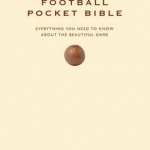
The Football Pocket Bible: The Perfect Gift for Every Football Fan
Book
The perfect gift for every football fan When was the first World Cup held? Which football team has...
KittyMiku (138 KP) rated A Throne For Sisters in Books
May 23, 2019
This was a fairly good novel that teaches you that lying can bring you more harm than good, even if it buys you a little happiness. It also teaches you that no matter what, you can't escape those who wish to harm you. Even if the people who do so change. The story was the best to help create the intrigue in the story itself, but it did have a lot of errors that left something to be desired. I have to say the characters were pretty interesting, even if their backgrounds, personalities and such were lacking. An example being the sisters. They were given some distinct personality traits and an ability that made you want to know more about them, yet it hinted at their past making you really wish it would be delved into, so you can understand their situation and their different ways of thinking. I can only hope more will be revealed in the rest of the series, though with how the story is going, makes me wonder if it will ever be touched base again.
Though the novel is written in a way that allows the reader to see what each girl is doing on their own, you can't help but want a better way to see this happen. It really makes things confusing, going from one chapter to the next, knowing you will see what one girls doing this chapter and the other girl next chapter, but it can be hard when trying to make a timeline of the story. If the chapter headers would at least give you a time period so you knew exactly what was going on when, it would definitely had helped. I got the gist it was supposed to be each chapter was happening at the last chapter was, but it drove me insane when I found myself thinking that what this girl was doing might be happening after the girl I just finish reading about. I would have loved a better transition.
I also found, though the book had some good conversations, when they got voiced, that their weren't a lot of conversations going on in the book and the details of the scenery didn't make up for this. I am used to being able to see what the characters are thinking in the middle of conversations, but to not have a whole lot of them was very disappointing. It felt as if the conversations were skipped at times, just giving you a basis of what was discussed, when I would have loved to know more. I understand mundane conversations being skipped, but when the two characters are falling in love, it would be nice to have more conversations, details on the different characters actions, etc. However, none of that happened. Just brief sentences about it.
Though, I will probably read the rest of the series, just to figure out what happens next and because I am a little OCD about finishing series I start, I fear it won't stand up to my standards. With that said, I do think this book would be good for teens. It is fast paced, doesn't dwell on some of the finer details someone like I would enjoy, and had a great idea in the story plot. I would rate this book 2 stars out of 5 stars because of how it was written. I would have definitely loved more and hope in the future books, Rice will give us just that and not skimp out on things that may help the story become deeper and much more fulfilling.
Though the novel is written in a way that allows the reader to see what each girl is doing on their own, you can't help but want a better way to see this happen. It really makes things confusing, going from one chapter to the next, knowing you will see what one girls doing this chapter and the other girl next chapter, but it can be hard when trying to make a timeline of the story. If the chapter headers would at least give you a time period so you knew exactly what was going on when, it would definitely had helped. I got the gist it was supposed to be each chapter was happening at the last chapter was, but it drove me insane when I found myself thinking that what this girl was doing might be happening after the girl I just finish reading about. I would have loved a better transition.
I also found, though the book had some good conversations, when they got voiced, that their weren't a lot of conversations going on in the book and the details of the scenery didn't make up for this. I am used to being able to see what the characters are thinking in the middle of conversations, but to not have a whole lot of them was very disappointing. It felt as if the conversations were skipped at times, just giving you a basis of what was discussed, when I would have loved to know more. I understand mundane conversations being skipped, but when the two characters are falling in love, it would be nice to have more conversations, details on the different characters actions, etc. However, none of that happened. Just brief sentences about it.
Though, I will probably read the rest of the series, just to figure out what happens next and because I am a little OCD about finishing series I start, I fear it won't stand up to my standards. With that said, I do think this book would be good for teens. It is fast paced, doesn't dwell on some of the finer details someone like I would enjoy, and had a great idea in the story plot. I would rate this book 2 stars out of 5 stars because of how it was written. I would have definitely loved more and hope in the future books, Rice will give us just that and not skimp out on things that may help the story become deeper and much more fulfilling.
Lucy Buglass (45 KP) rated Black Mirror: Bandersnatch (2018) in Movies
Jun 20, 2019
It comes as no surprise that Black Mirror was Netflix’s guinea pig for their first ever interactive film. Charlie Brooker’s anthology series about the dark side of technology has captivated fans ever since it first aired on Channel 4 in the UK. With Netflix being a leading entertainment service, the time had come for them to try something brand new. The film dropped over the Christmas break, and I for one was very excited to sit down and try it.
Black Mirror: Bandersnatch is set in the ’80s and follows teenager Stefan Butler as he works to create a choice/consequence video game called ‘Bandersnatch’. He’s basing it off one of his mother’s ‘choose your own adventure’ books, where you could flick back and forth between chapters to change the course of your story. He’s been invited to speak with video games company Tuckersoft, comprised of video game creator Colin Ritman and savvy businessman Mohan Thaku, in the hopes he can make the game for their company.
As Stefan works on ‘Bandersnatch’, he also visits a therapist to help with his depression following the loss of his mother. He takes an unnamed medication in an attempt to ease his symptoms. Soon, the lines between reality and the video game world start to blur for Stefan, and he becomes more and more unhinged before our eyes.
That’s about all I’m going to tell you about the plot itself, because I don’t want to give away any spoilers. My advice when approaching this for the first time is to go in completely blind and just make your own decisions. You can find numerous pathway guides online, but try to avoid these until your later playthroughs if you can. Black Mirror: Bandersnatch is an experience that requires multiple watches and a lot of patience, but I promise you it’s worth it.
Personally I adore this episode, and I think they did such a fantastic job of bringing it to life. It’s so fluid and engaging; the scenes continue to play even when the options pop up on screen. The acting is absolutely stunning, with Fionn Whitehead (Stefan) and Will Poulter (Colin) impressing me the most, but every character is so well acted and believable. For the very first time, you feel part of the Black Mirror universe, and everything starts to feel so meta. There are also a lot of references to previous episodes which will delight long term fans, but aren’t too jarring for those new to the series.
Both Black Mirror and Netflix have proven they can work with interactivity without making it too gimmicky or tedious. It’s a fascinating format that I’m excited to see more of, and I’m sure we haven’t seen the last of this. I have equal amounts of praise for both the series and Netflix themselves, because they’re constantly upping the entertainment game which makes me fall in love even more. This is the kind of stuff that really excites me!
In classic Black Mirror style, there are some disturbing pathways but they’re arguably my favourite. They’re chilling, harrowing and bloody brilliant. At this point I think I’ve explored every possible ending or pathway, but I’m reluctant to spoil any of them on here because that would ruin the experience. However, if you do want to discuss anything, please do message me on @LGTHBlog so we can fangirl together!
https://lucygoestohollywood.com/2019/01/06/netflixs-first-interactive-film-my-thoughts-on-black-mirror-bandersnatch/
Black Mirror: Bandersnatch is set in the ’80s and follows teenager Stefan Butler as he works to create a choice/consequence video game called ‘Bandersnatch’. He’s basing it off one of his mother’s ‘choose your own adventure’ books, where you could flick back and forth between chapters to change the course of your story. He’s been invited to speak with video games company Tuckersoft, comprised of video game creator Colin Ritman and savvy businessman Mohan Thaku, in the hopes he can make the game for their company.
As Stefan works on ‘Bandersnatch’, he also visits a therapist to help with his depression following the loss of his mother. He takes an unnamed medication in an attempt to ease his symptoms. Soon, the lines between reality and the video game world start to blur for Stefan, and he becomes more and more unhinged before our eyes.
That’s about all I’m going to tell you about the plot itself, because I don’t want to give away any spoilers. My advice when approaching this for the first time is to go in completely blind and just make your own decisions. You can find numerous pathway guides online, but try to avoid these until your later playthroughs if you can. Black Mirror: Bandersnatch is an experience that requires multiple watches and a lot of patience, but I promise you it’s worth it.
Personally I adore this episode, and I think they did such a fantastic job of bringing it to life. It’s so fluid and engaging; the scenes continue to play even when the options pop up on screen. The acting is absolutely stunning, with Fionn Whitehead (Stefan) and Will Poulter (Colin) impressing me the most, but every character is so well acted and believable. For the very first time, you feel part of the Black Mirror universe, and everything starts to feel so meta. There are also a lot of references to previous episodes which will delight long term fans, but aren’t too jarring for those new to the series.
Both Black Mirror and Netflix have proven they can work with interactivity without making it too gimmicky or tedious. It’s a fascinating format that I’m excited to see more of, and I’m sure we haven’t seen the last of this. I have equal amounts of praise for both the series and Netflix themselves, because they’re constantly upping the entertainment game which makes me fall in love even more. This is the kind of stuff that really excites me!
In classic Black Mirror style, there are some disturbing pathways but they’re arguably my favourite. They’re chilling, harrowing and bloody brilliant. At this point I think I’ve explored every possible ending or pathway, but I’m reluctant to spoil any of them on here because that would ruin the experience. However, if you do want to discuss anything, please do message me on @LGTHBlog so we can fangirl together!
https://lucygoestohollywood.com/2019/01/06/netflixs-first-interactive-film-my-thoughts-on-black-mirror-bandersnatch/
